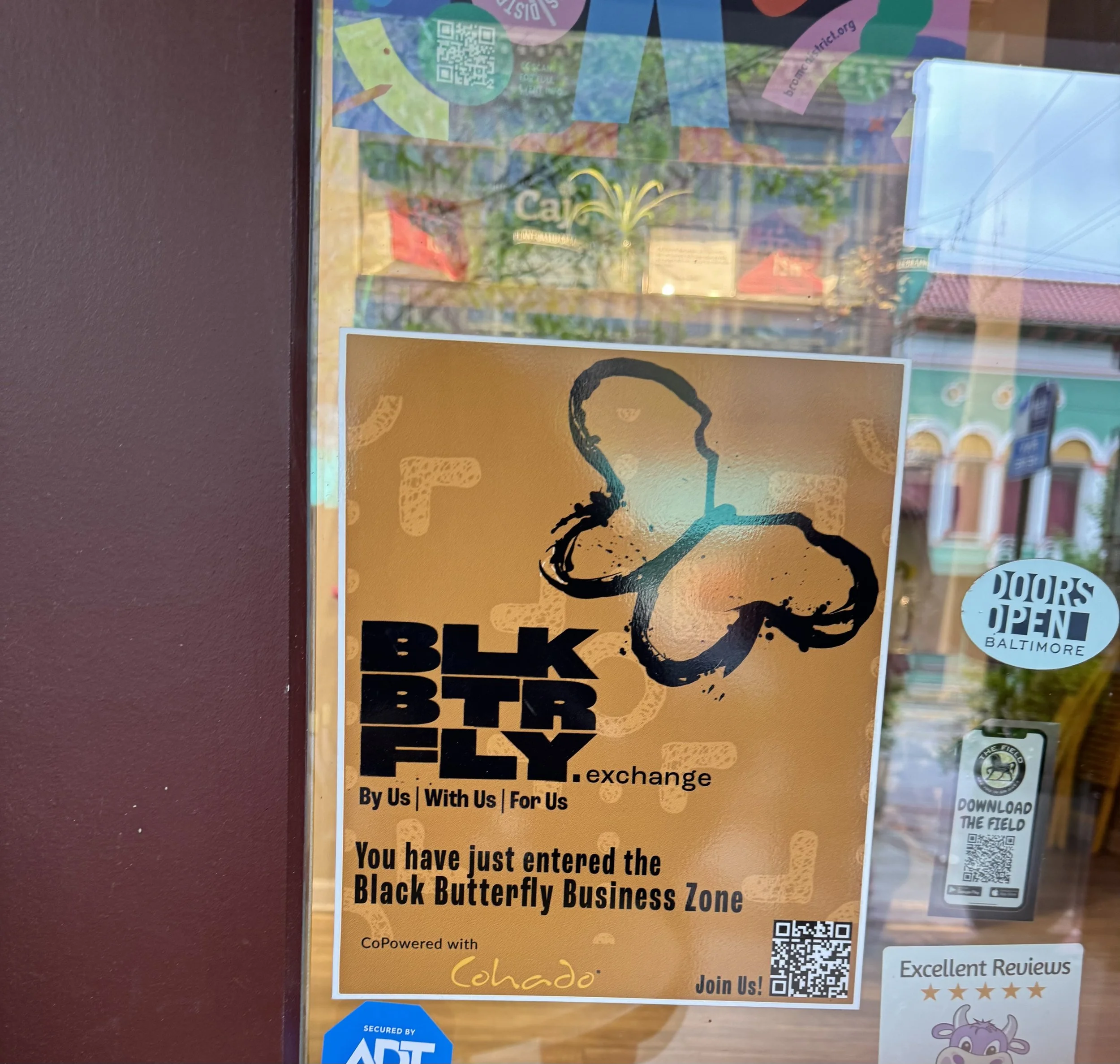Ecosystem Tour 24-11: Baltimore, MD Pt. 2
This episode brings us to the heart of Baltimore's Bromo Arts District. We’re visiting to learn first hand about how new models of grassroots entrepreneur support and ecosystem building are directly impacting communities. What did we discover?
Cajou Creamery isn’t just serving up plant-based cashew milk ice cream — it’s serving up a new approach to business. The driving force behind this approach is Cohado, a philosophy of shared success and community-driven growth. While most businesses focus on competition, Cohado teaches that the game isn't over until everyone wins. And for Cajou founder Dwight Campbell, this mindset has been the key to taking his ice cream brand from a small local shop to the freezers nationwide.
But Dwight didn’t arrive at this mindset alone. His chance encounter with Paulo Gregory changed everything. It happened three months after Dwight moved to Baltimore. While working at a local farmers’ market, he noticed a man approach his stand and ask, "What you got there? Dwight handed him a sample of his signature sweet potato pie cashew ice cream. But instead of taking a bite and walking away, the man stayed. They talked. Two and a half hours later, that man — Paolo Gregory — left, but not without planting a seed in Dwight's mind.
Paolo didn’t just become a friend; he became a mentor. As the founder of the Black Butterfly Network, a group dedicated to empowering Black entrepreneurs, Paulo invited Dwight to be part of his first Cohado cohort. But unlike most accelerator programs, this one had no "curriculum" or step-by-step guide. The cohort wasn’t about following rules — it was about building something together. By the end of the program, the participants were more than just business owners — they were family. They laughed, cried, ate meals together, and shared wisdom that Dwight still carries with him today.
This Cohado mindset has shaped every part of Cajou Creamery's growth. When a chance encounter with a buyer from Whole Foods led to a massive order for 400 cases of ice cream, Dwight faced an immediate logistical problem: he didn’t have enough freezer space. Instead of scrambling to rent warehouse storage, he turned to his Cohado network. Within minutes, fellow Black-owned business Ice Queens offered their freezers for free. It was a simple act, but it meant the difference between fulfilling the order and missing out on one of the biggest opportunities of his career.
But Dwight doesn’t just practice Cohado for his own benefit — he champions it for the entire community. Unlike most entrepreneurs chasing venture capital, he’s rejected offers from traditional investors, even turning down Shark Tank twice. While others might see venture capital as "growth," Dwight sees it as losing control. His mission is bigger than profits. He’s not just trying to build a successful business — he’s trying to build a legacy of empowerment.
“I want to be a billionaire so I can fund other entrepreneurs”
He doesn’t want to "acquire" or "control" businesses. He wants to nurture them — like planting seeds and watching them bloom. It’s not a new idea; it’s as old as the villages of Africa, where every member contributes to the whole. This philosophy drives the Black Butterfly Network and the Cohado model that Paulo Gregory first introduced him to.
And Dwight isn't alone. On his street, he’s surrounded by other Black-owned businesses like Vegan Juiceology and Vinyl and Pages all of whom support one another. They cross-promote each other, share customers, and face challenges together. This spirit of shared growth is the Cohado way in action. Dwight knows that if he stands alone, he might survive — but if they all stand together, they will thrive.
Today, Cajou Creamery isn’t just a local favorite; it’s becoming a national brand available in Whole Foods and 300 other stores. But Dwight hasn’t forgotten his roots. His Howard Street storefront is still open, and it’s more than a shop — it’s a space for connection. On one rainy night, 12 strangers gathered inside, sharing stories, ideas, and dreams. Teachers, filmmakers, research scientists — people from different worlds — all sat together because of Cajou.
Despite what the name implies, we tend to fund ecosystem building through an industrial scale monoculture lens. We target massive investments into industries and innovations meant to increase our competitive dominance over China and other nations. In reality, 99.5% of entrepreneurship falls outside the world of venture backed innovation. This is the fabric of our economy, and what binds our communities and nation together. This is why it's critical that we solve funding models for the work that grassroots ecosystem builders are doing to build communities and expand access to wealth.
This is what Cohado looks like in practice. It’s not just about how you sell ice cream — it’s about how you bring people together. If you want to support this movement, you can visit Cajou Creamery at 411 Howard Street, Baltimore, order online at cajoucreamery.com, or grab a pint at your local Whole Foods. With every scoop, you’re not just buying ice cream — you’re supporting a philosophy, a movement, and a community-first approach to business.
Follow our updates on social media, YouTube, and our podcast to stay tuned for more stories and insights from our Make Startups Ecosystem Tour.



